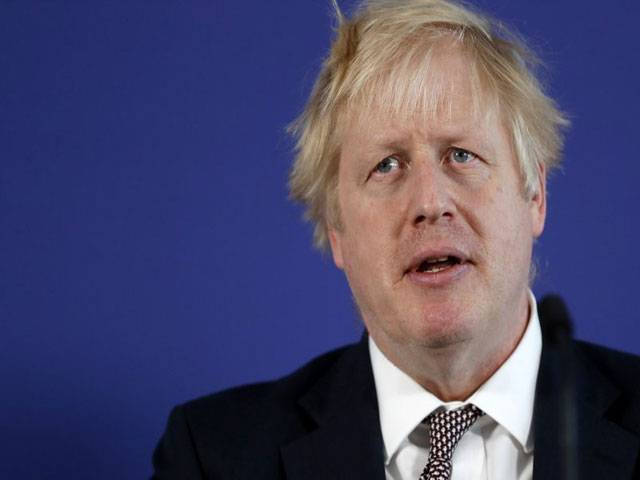LONDON-Prime Minister Boris Johnson struggled Friday to move Britain’s election debate away from questions about his character and onto Brexit, promising to bolster protection for British businesses and farmers once the country has left the European Union.
Johnson tried to brush aside criticism of his past comments about single mothers and his current refusal to submit to the same amount of televised scrutiny as other party leaders. At a news conference, Johnson claimed Brexit had been “delayed, diluted, denied” by obstructive politicians. He said that if the Conservatives won the Dec. 12 election he would take the U.K. out of the European Union on the currently scheduled date of Jan. 31, so that “we can finally move on as a country.”
He touted the alleged benefits that would come with departure from the 28-nation trade bloc, saying his government would introduce new state-aid rules allowing the government to step in to help struggling businesses. The level of support EU governments can give industries is limited by regulations barring anything that might distort competition. Johnson also vowed to scrap an EU-required tax on tampons and sanitary pads and introduce a requirement for public bodies to buy British produce rather than imports. Promising more state intervention in the economy is reminiscent of the left-of-center Labour Party, rather than the free-marketeer Conservatives, and appears designed to help the Tories win over Brexit-backing Labour supporters.
All 650 seats in the House of Commons are up for grabs in the Dec. 12 election, which is being held more than two years early after Parliament became deadlocked over Brexit. Johnson wants to secure a Conservative majority in the election so he can push through the Brexit divorce deal he negotiated with the EU. Under the terms of that deal, the U.K. would leave the EU on Jan. 31 but remain bound by the bloc’s rules until the end of 2020.
On Friday, Johnson repeated his assertion that Britain and the EU will be able to strike a new free trade deal by the end next year, a timescale trade experts say is wildly ambitious. “I am full of optimism and confidence and suggest that everybody else should be as well,” he said.
But Johnson also announced plans to diverge from EU rules in significant ways, which would make it harder to retain close trade ties with the bloc.
Friday, April 19, 2024
Johnson seeks to focus UK election on Brexit, not his flaws

8:27 AM | April 19, 2024
8:09 AM | April 19, 2024
Formula 1 returns to China for Round 5
9:05 PM | April 19, 2024
Germany head coach Julian Nagelsmann extends contract till 2026 World Cup
9:00 PM | April 19, 2024
IMF urges Italy, France to spend less, Germany to loosen purse strings
8:57 PM | April 19, 2024
PM calls UAE president, admires Emirati leadership's response to recent Dubai rains
8:55 PM | April 19, 2024
Church leader calls for including Christians in Gandhara Corridor
8:50 PM | April 19, 2024
A Tense Neighbourhood
April 19, 2024
Dubai Underwater
April 19, 2024
X Debate Continues
April 19, 2024
Hepatitis Challenge
April 18, 2024
IMF Predictions
April 18, 2024
Kite tragedy
April 19, 2024
Discipline dilemma
April 19, 2024
Urgent plea
April 19, 2024
Justice denied
April 18, 2024
AI dilemmas unveiled
April 18, 2024
ePaper - Nawaiwaqt
Advertisement
Nawaiwaqt Group | Copyright © 2024





